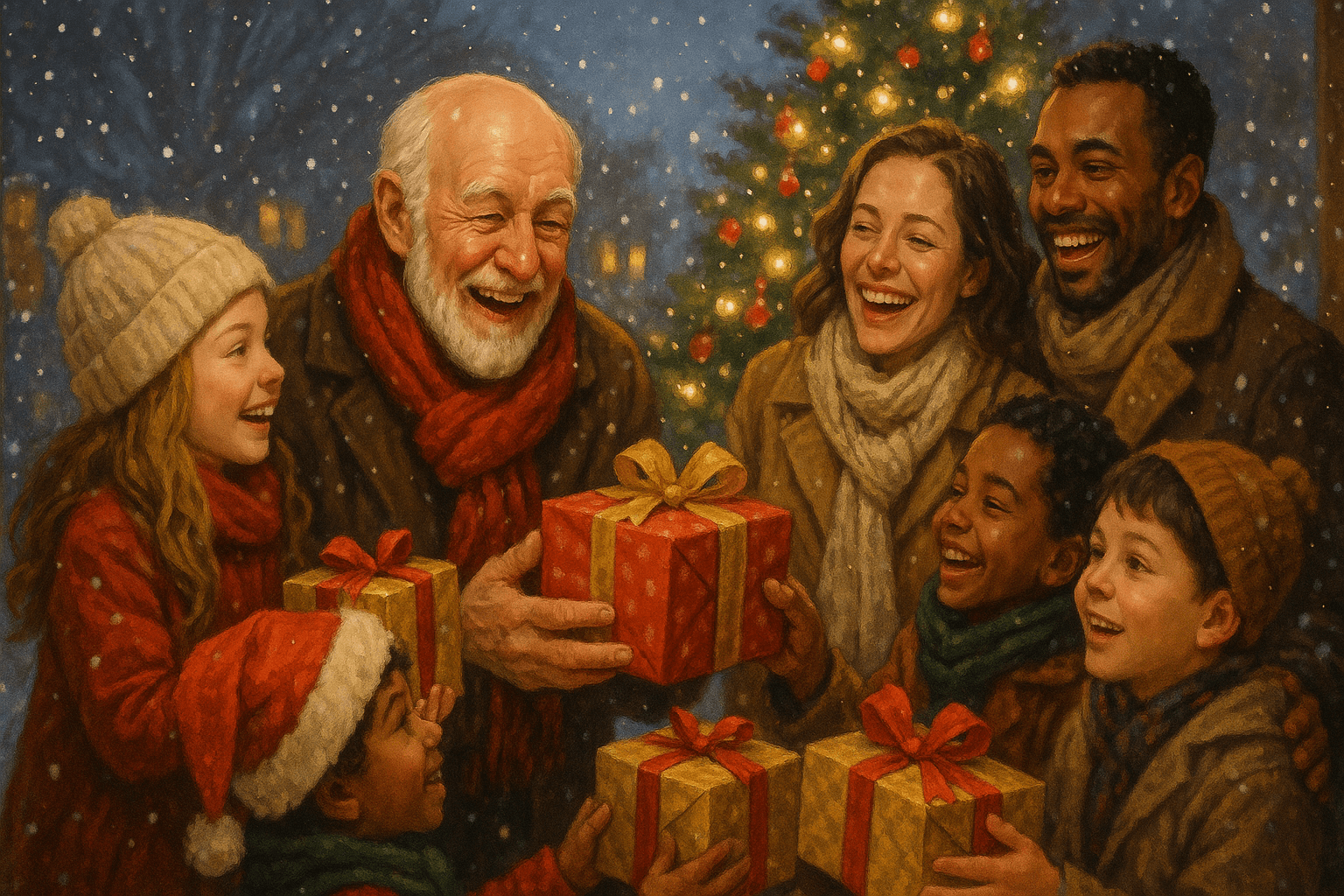The Transformative Power of Compassion in 'A Christmas Carol'

When we think of classic holiday tales, Charles Dickens' "A Christmas Carol" often springs to mind, not just for its ghostly elements but for its rich exploration of compassion. At its core, this beloved story is about the transformative power of empathy and generosity, as embodied by the miserly Ebenezer Scrooge.
In the beginning, we meet Scrooge, a man so entrenched in his own greed that he has lost touch with the joys of human connection. His disdain for Christmas and his cold treatment of Bob Cratchit, his underpaid clerk, illustrate a life devoid of compassion. Scrooge's isolation is palpable, as he shuts out the warmth of companionship, preferring the company of his money over the joy of others. This sets the stage for a journey that will challenge and ultimately change him.
The appearance of Marley's ghost is a pivotal moment in the narrative. Marley, burdened by the chains of his own greed, serves as a warning to Scrooge. His deep regret for not having shown compassion during his life highlights the consequences of a heart closed off to kindness. As Marley tells Scrooge about the three spirits that will visit him, the seeds of potential change are planted. This foreshadowing of redemption is crucial, as it signals that even the hardest of hearts can be softened.
As Scrooge is taken on a journey through his past, the theme of compassion unfolds. The Ghost of Christmas Past reveals moments from Scrooge's early life, filled with warmth and connection, contrasting sharply with his current state of loneliness. Watching the joyful Christmas parties hosted by Mr. Fezziwig, Scrooge begins to feel the pangs of nostalgia and regret. This stark contrast between his past happiness and present isolation serves as a catalyst for reflection, urging him to recognize the value of compassion in fostering joy and community.
Then comes the Ghost of Christmas Present, a jolly giant who embodies the spirit of generosity. This spirit invites Scrooge to witness the Cratchit family's humble yet joyful Christmas celebration. Here, we meet Tiny Tim, whose hopeful spirit and heartfelt toast—"God bless us, every one!"—encapsulate the essence of compassion. The Cratchits, despite their struggles, radiate love and togetherness, reminding Scrooge of what he has been missing. As Scrooge witnesses their resilience and joy, he begins to understand that true wealth lies not in money but in human connection and kindness.
The final spirit, the Ghost of Christmas Yet to Come, presents a stark and haunting vision of Scrooge's potential future. Faced with the reality of his own neglected grave, he is compelled to confront the emptiness of a life lived without compassion. This chilling moment ignites a desperate plea for change within him, marking a turning point in his journey toward redemption.
By the story's conclusion, we see Scrooge fully transformed. Awaking on Christmas morning, he is filled with joy and gratitude, eager to embrace the spirit of giving. His newfound compassion is evident as he reaches out to those he once ignored, most notably the Cratchit family. Scrooge's actions ripple through the community, demonstrating how one person's change can inspire a collective spirit of goodwill.
In the end, Dickens masterfully illustrates that compassion is indeed contagious. Scrooge's declaration, "God bless Us, Every One!" is not just a personal transformation but a call to community, a reminder that our connections with others can enrich our lives and the lives of those around us. From a cold-hearted miser to a beloved benefactor, Scrooge's journey serves as a timeless reminder of the importance of compassion in our own lives, especially during the holiday season.
So, as we reflect on this classic tale, let’s ask ourselves: how can we, like Scrooge, embrace the spirit of compassion in our daily lives?
Books: A Christmas Carol in Prose; Being a Ghost Story of Christmas
Authors: Charles Dickens
Publishers: Public Domain